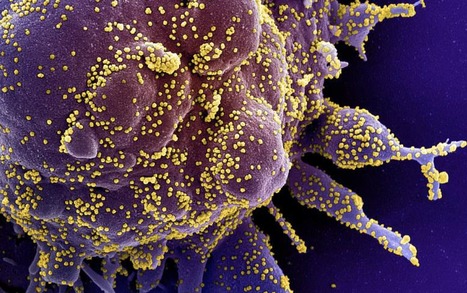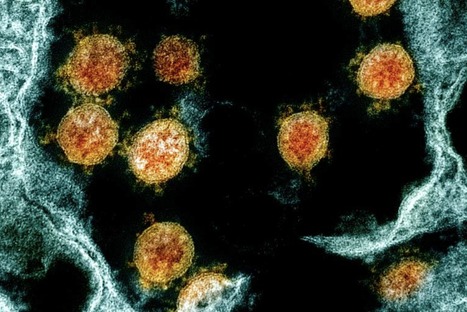Patients admitted with COVID-19 at select hospitals may now volunteer to enroll in a clinical trial to test the safety and efficacy of a potential new treatment for the disease. The Phase 3 randomized, controlled trial is known as ACTIV-3, and as a “master protocol,” it is designed to expand to test multiple different kinds of monoclonal antibody treatments. It also can enroll additional volunteers in the middle of the trial, if a specific investigational treatment shows promise. The new study is one of four ongoing or planned trials in the National Institutes of Health’s. Accelerating COVID-19 Therapeutic Interventions and Vaccines (ACTIV) program, a public-private partnership to speed development of the most promising treatments and vaccine candidates. It also is receiving support through Operation Warp Speed(link is external), the U.S. government’s multi-agency effort to develop, manufacture and distribute medical countermeasures to fight COVID-19.
The trial will take place at select hospitals around the world that are part of existing clinical trial networks. They include the lead network, the International Network of Strategic Initiatives in Global HIV Trials (INSIGHT), operated by the National Institute of Allergy and Infectious Diseases (NIAID), a part of the National Institutes of Health. Collaborating clinical trial networks include the Prevention and Early Treatment of Acute Lung Injury network (PETAL) and Cardiothoracic Surgical Trials Network (CTSN), supported by the NIH’s National Heart, Lung and Blood Institute through the Collaborating Network of Networks for Evaluating COVID-19 and Therapeutic Strategies (CONNECTS) program, and the U.S. Department of Veterans Affairs Medical Centers. ACTIV-3 uses an adaptive two-stage Phase 3 protocol design. The ACTIV-3 trial can be modified to test additional experimental therapeutics and flexibly allow novel therapeutics to enter at either stage 1 or stage 2. In addition, if a treatment appears to be safe and effective in the initial stage after review by an independent data and safety monitoring board (DSMB), the investigational therapeutic proceeds to stage 2 testing, where more volunteers are enrolled. If an investigational therapeutic is unsafe or not likely to be effective, it will be dropped...
The initial stage of the ACTIV-3 clinical trial aims to enroll approximately 300 volunteers who have been hospitalized with mild to moderate COVID-19 with fewer than 13 days of symptoms. Once their COVID-19 infections have been confirmed and they have consented to take part in the study, participants will be randomly assigned to receive either an intravenous (IV) infusion of LY-CoV555 or a saline placebo infusion. Participants also will receive standard care for COVID-19, including the antiviral remdesivir. After five days, participants’ symptoms will be assessed, as will their need for supplemental oxygen, mechanical ventilation, or other supportive care. Volunteers will be followed for 90 days after enrollment and will receive regular examinations and have blood samples taken periodically during this time to analyze their response to the investivational therapeutic. Data collected on the fifth day of the volunteers’ participation will determine whether the investigational therapeutic will be administered to a larger group of volunteers. If LY-CoV555 appears to be safe and appears to be effective, the trial will enroll an additional 700 participants. It also will begin enrolling more severely ill participants, such as those with organ failure requiring mechanical support, or COVID-19-associated dysfunction of organs other than the lungs. The primary endpoint of the trial is the participants’ sustained recovery for 14 days after release from the hospital. The principal investigator of ACTIV-3 is Jens Lundgren, M.D., of the University of Copenhagen and Rigshospitalet. Leads of the participating networks include James Neaton, Ph.D., of the INSIGHT network, Taylor Thompson, M.D., of the PETAL network, Annetine Gelijns, Ph.D., and Alan Moskowitz, M.D., of the CTSN, and Rachel Ramoni, D.M.D., Sc.D., of the U.S. Department of Veterans Affairs. To ensure that the trial is being conducted in a safe and effective manner, an independent DSMB will oversee the trial and conduct periodic reviews of the accumulating data...



 Your new post is loading...
Your new post is loading...








